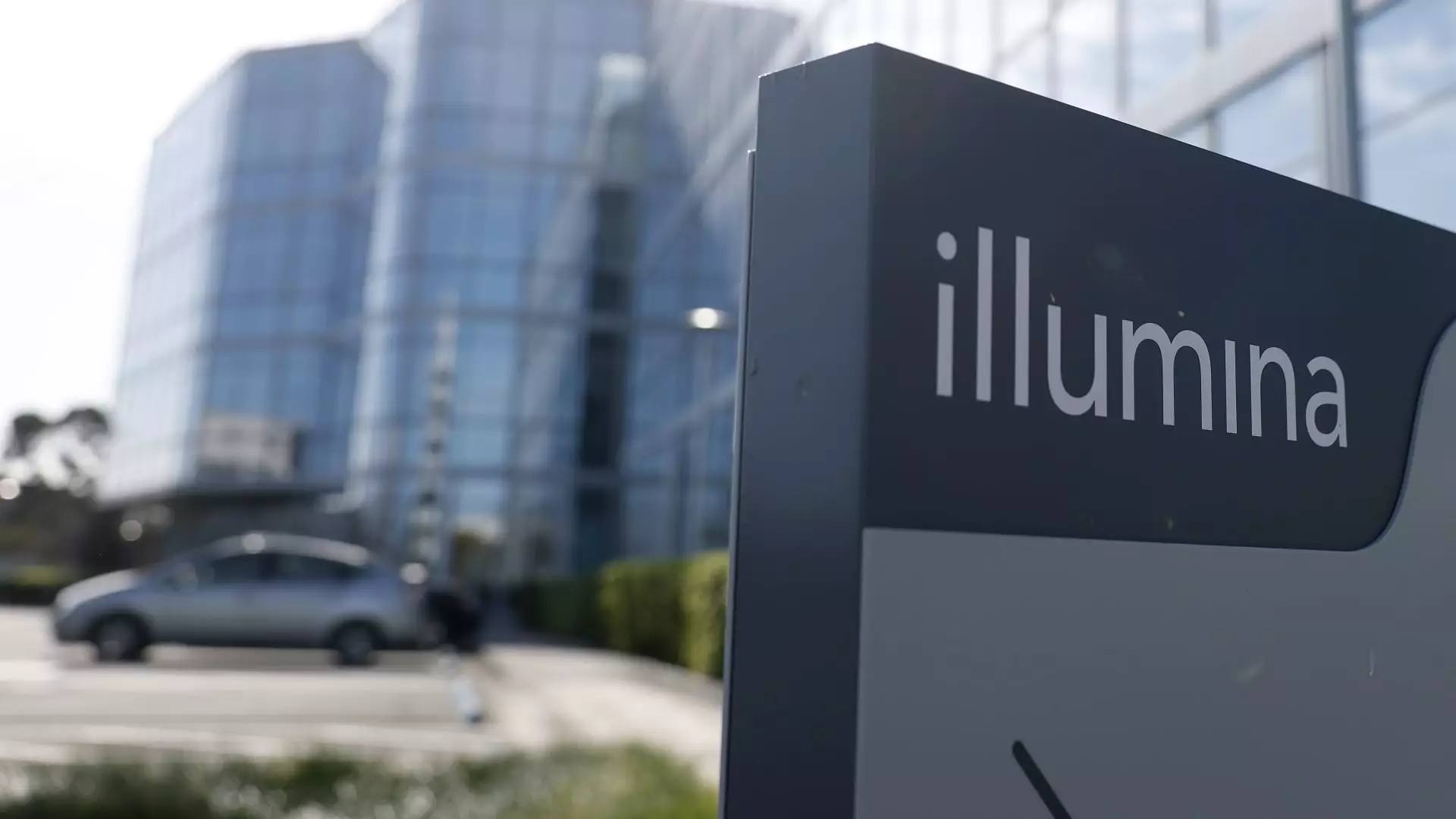Illumina Inc., a leading firm in genetic sequencing solutions, finds itself at a significant crossroads, facing tumultuous times following a daring rise during the Covid-19 pandemic. Once a shining beacon of hope in biotechnology, with revenues soaring due to the urgent demand for genomic testing, this $12.67 billion company now wrestles with the ghosts of strategic missteps. This analysis delves into the complex layers of Illumina’s recent history, exposes the vulnerabilities lurking beneath its commanding market share, and highlights how an over-reliance on past success may spell its downfall.
Harrowing Miscalculations and Regulatory Wrath
It’s no secret that Illumina’s revenue surged from $3.2 billion in 2020 to a peak of $4.5 billion in 2021. However, the euphoria was short-lived. A disastrous gamble on Grail, its spinoff designed to enhance early cancer detection, has haunted Illumina since its inception. Initially spun out in 2016, that decision quickly became a double-edged sword, as Illumina sought to reclaim control by acquiring Grail for a staggering $8 billion. This move, however, attracted scrutiny from regulators, particularly the Federal Trade Commission and the European Union, resulting in a harsh rebuke from the European Commission, which not only blocked the deal but imposed fines as well.
In focusing on revenue growth rather than laying sound operational strategies, Illumina may have succumbed to the hubris that often comes with rapid success. The biopharmaceutical landscape is laden with uncertainty, and as the National Institutes of Health’s funding ecology shifts, Illumina has found itself in more perilous waters than it anticipated.
A Fragile Leadership Framework Amidst Market Challenges
With a new leadership team in place including a revamped board led by Scott Gottlieb, who is no newcomer to controversy, Illumina seems poised to navigate these turbulent seas yet again. However, the internal shakeup raises questions: can new leadership effectively tackle the entrenched issues caused by the company’s reckless moves in recent years? Ostensibly, the company’s “razor-and-blade” model is appealing, as it promises high margins from consumables. However, relying on this approach can create a false sense of security; one needs only to look at the considerable drop in stock value from $511 to the current $80 to realize that the market is no longer convinced of Illumina’s narrative.
The precision biotechnology industry thrives on innovation, and Illumina’s hesitation to transition to the NovaSeq X, a newer generation of sequencing technology, has left it vulnerable to competitors eager to fill the void. As potential revenue streams tighten during this transition, Illumina’s dependence on consumables could become a double-edged sword. The company’s installed base, featuring over 20,000 machines, offers a facade of stability, but without sustained innovation and market confidence, even the most robust installations can wither.
Activism: A Double-Edged Sword
Adding into this precarious mix is the involvement of activist investors like Corvex Management. The appointment of Keith Meister to Illumina’s board could spell both opportunity and risk. Although Meister comes with a history of succeeding in similar positions, the question looms whether activism can restore the confidence that Illumina’s huge market share might suggest. Investors are often torn between the tactical advantages offered by disruptive activist involvement and the risk of destabilizing traditional governance on which successful companies break ground.
Moreover, it cannot be neglected that activism does not always lead to positive outcomes. In Illumina’s case, Meister may bring clarity, yet his influence will only magnify existing vulnerabilities. Given that Corvex has expressed an interest in short-term gains as opposed to the long-term stability Illumina needs, one can’t help but wonder how this influence will play out. The repercussions of this ambivalence stand to be significant if management fails to adapt swiftly to market dynamics.
The Illusion of Security in Market Leadership
Despite Illumina’s substantial share—over 80%—of the global sequencing technology market, these figures can paint a misleading picture of security. As company valuations tumble, and geopolitical challenges continue to present difficulties in lucrative markets like Russia and China, there are looming concerns about the company’s ability to sustain its position.
In a rapidly evolving sector, reliance on market share numbers can lead organizations into complacency. The once-revered Illumina now navigates a tightrope—its past glories capturing attention, while the present outlines a stark narrative of risk mismanagement and strategic blunders. For an entity that had once been the torchbearer of genomic solutions, the paradigm shift might be more profound than anticipated, clouding its illustrious image with the ambiguity of a troubled future.
Illumina’s journey resonates within a broader discourse in the biotech sector: the essential balance of innovation, strategy, and governance. If the company is to reclaim its illustrious past, it must remain vigilant and embrace the lessons of its troubled history, lest its impressive market share becomes an illusion rather than an asset.


Leave a Reply